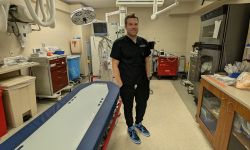Will raffles, pig roasts and same-day pay ease the health worker shortage?
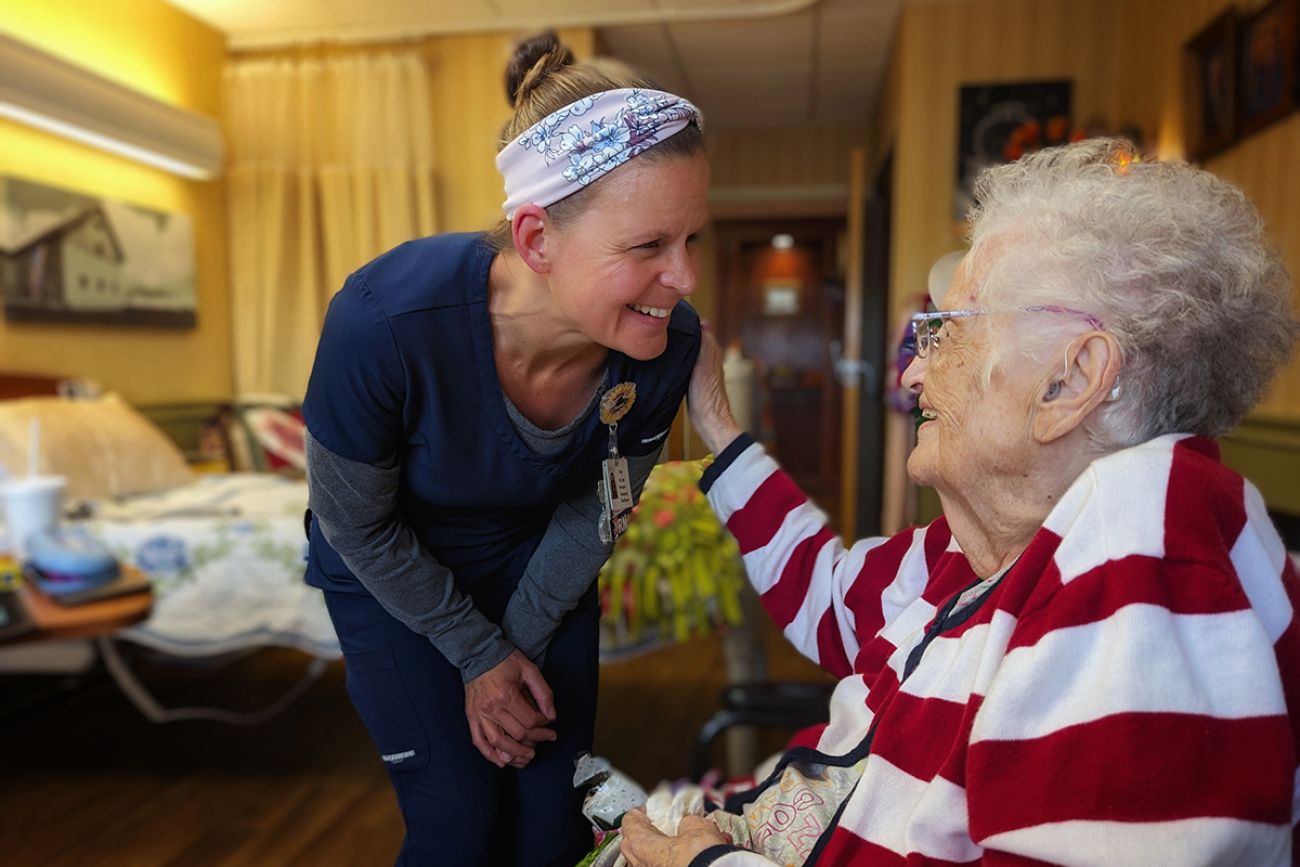
- Staffing shortages are endemic in Michigan hospitals, making recruitment and retention efforts crucial
- Some hospitals offer same-day pay, child care, transportation and raffle prizes to retain staff
- Others offer training opportunities to boost workers’ careers
OWOSSO—In his sparse office at Memorial Healthcare, Doug Taylor needs help with a problem that can’t be addressed by the most potent pills.
Taylor’s problem is people.
Taylor heads recruitment efforts at this rural hospital west of Flint and — like many of his peers across Michigan — he needs jobs filled throughout the building.
Michigan workers vacancies
In this occasional series, we examine the scope of critical worker shortages in 2023, from doctors and police officers to math teachers and social workers. To view more stories in this series click here.
He needs people behind pharmacy counters. People to draw blood. To clean rooms. And drive the hospital’s shuttle.
These needs are forcing Taylor and others in hospital HR to rethink recruitment and retention efforts — stretching further into communities for new staff while trying to hold onto those already on the payroll.
Several hours to the north, another hospital is doing just that. McLaren Northern Michigan in Petoskey is raffling off a new Ford Bronco, part of a months-long campaign to keep talented employees. The giveaway is financed through the Offield Family Foundation, which has financially supported McLaren for years.
A donor, working through the Offield foundation, pushed McLaren to find ways to keep its best staff and “asked us to think outside the box,” said Julie Jarema, chief development officer at the McLaren Northern Michigan Foundation.
So for seven months now, the hospital has raffled more than $10,000 in prizes to workers, including gift cards and travel getaways. There was a day at Avalanche Bay Indoor Waterpark in Boyne Falls, too and, more recently, a pig roast.
All of this has made work more fun, and the possibility of a Ford Bronco has created a buzz among hospital staff, said Melissa Kilpatrick, 39, who like her father before her, cleans patient rooms at the hospital.
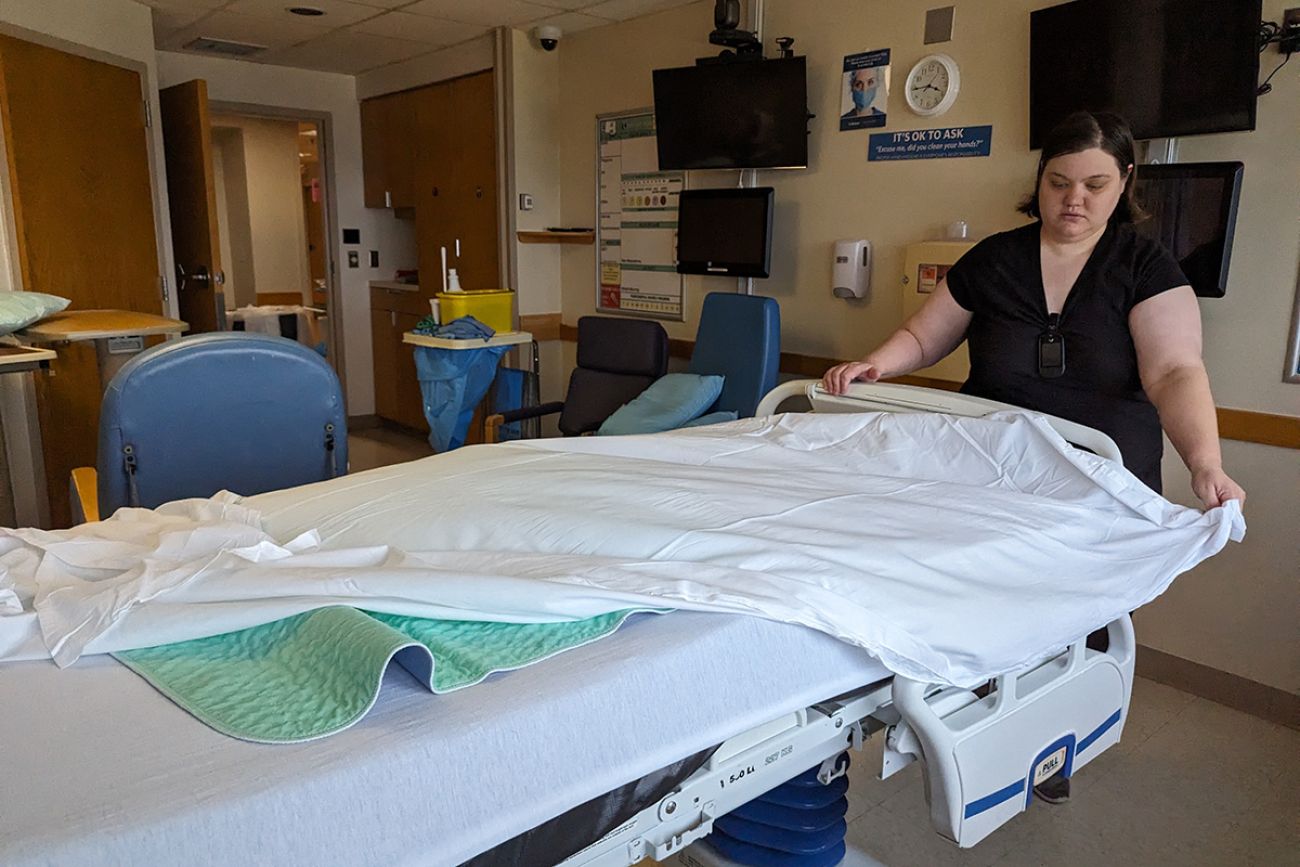
And that has sparked connections among coworkers, she said. In hallways and elevators, “you find you’re talking to each other and meeting people you might not talk to.”
Two of the state’s largest health care systems, Trinity Health and Corewell, are offering same-day pay options through the Payactiv app. With a few phone taps, employees can get paid before payday, transferring their earned funds via direct deposit or to their debit card.
Especially for health care’s lowest-wage workers, cash in hand the day it’s earned can mean the difference between gas in the car or being unable to show up for the next shift.
At Trinity, nearly one-in-10 workers with access to the app use it, said Shana Lewis, the vice president of the system’s talent acquisition and workforce development. Of those, about 40 percent say they feel more engaged at work because of daily pay, and nearly nine in ten — 88 percent — say it has relieved financial stress.
“For individuals in more entry level (jobs), the days and weeks between paychecks can seem a little bit longer than perhaps individuals that are making a little bit more money,” Lewis told Bridge Michigan.
Hospitals are also taking steps to improve career opportunities while also offering apprenticeship programs and on-the-job training.
Corewell is offering nursing scholarships, including $10 million in student grants to train more nurses and, like other providers, tightening relations with local community colleges and universities.
Last year, the first group of six neurodiagnostic EEG technicians (who monitor electrical activity in patients’ brains” wrapped up training through a Neurodiagnostic Apprenticeship Program, a new partnership between Grand Rapids Community College and then-Spectrum Health. Spectrum, which later merged with Beaumont Health to become Corewell, had been unable to attract workers to those jobs, so its program instead sought out existing workers to train.
In their new roles, the techs “have the potential to make $22 an hour — well above Spectrum’s normal $16 per hour minimum wage — and if they pass a board exam to become certified, they qualify for a $25 per hour wage,” according to the community college.
More than 27K open positions
Memorial, Corewell and Trinity are hardly alone in their staffing woes.
By last count, Michigan hospitals were short 13 percent of their workforce, or more than 27,000 positions, according to a survey in March of nearly every Michigan hospital, according to the Michigan Health & Hospital Association, the industry group that conducted the survey.
“It’s everything — we just there's not enough people,” said Sherry Pfaff-Doody, director of talent acquisition at Lansing-based Sparrow Health System. “The question that I stop and ask myself is ‘Where did everybody go?’”
The implications are hard to overstate.
About 1,600 hospital beds have been taken off line because hospitals have lacked enough workers to staff them since October 2020, according to the latest data from the Michigan Health & Hospital Association. And that’s only a partial picture. Data doesn’t include children’s hospitals, health clinics or private doctor’s offices, for example.
Hospitals leaders say they can’t simply raise pay across-the-board, because they are constrained by reimbursements from insurers, which they say have failed to keep up with the cost of salaries and equipment and supply purchases.
Health care providers say they now are trying to find more creative ways for employees “to increase their pay … (in ways) that are not only going to be sustainable for us, but will be sustainable for them, even if they're not with Trinity,” Lewis said.
For hospitals, it also means understanding that the benefits that might prove attractive to older workers won’t necessarily motivate younger ones.
At Corewell, Jan Harrington-Davis, who leads recruitment efforts for the system, uses herself as an example. At nearly 50, her core concern is building toward retirement.
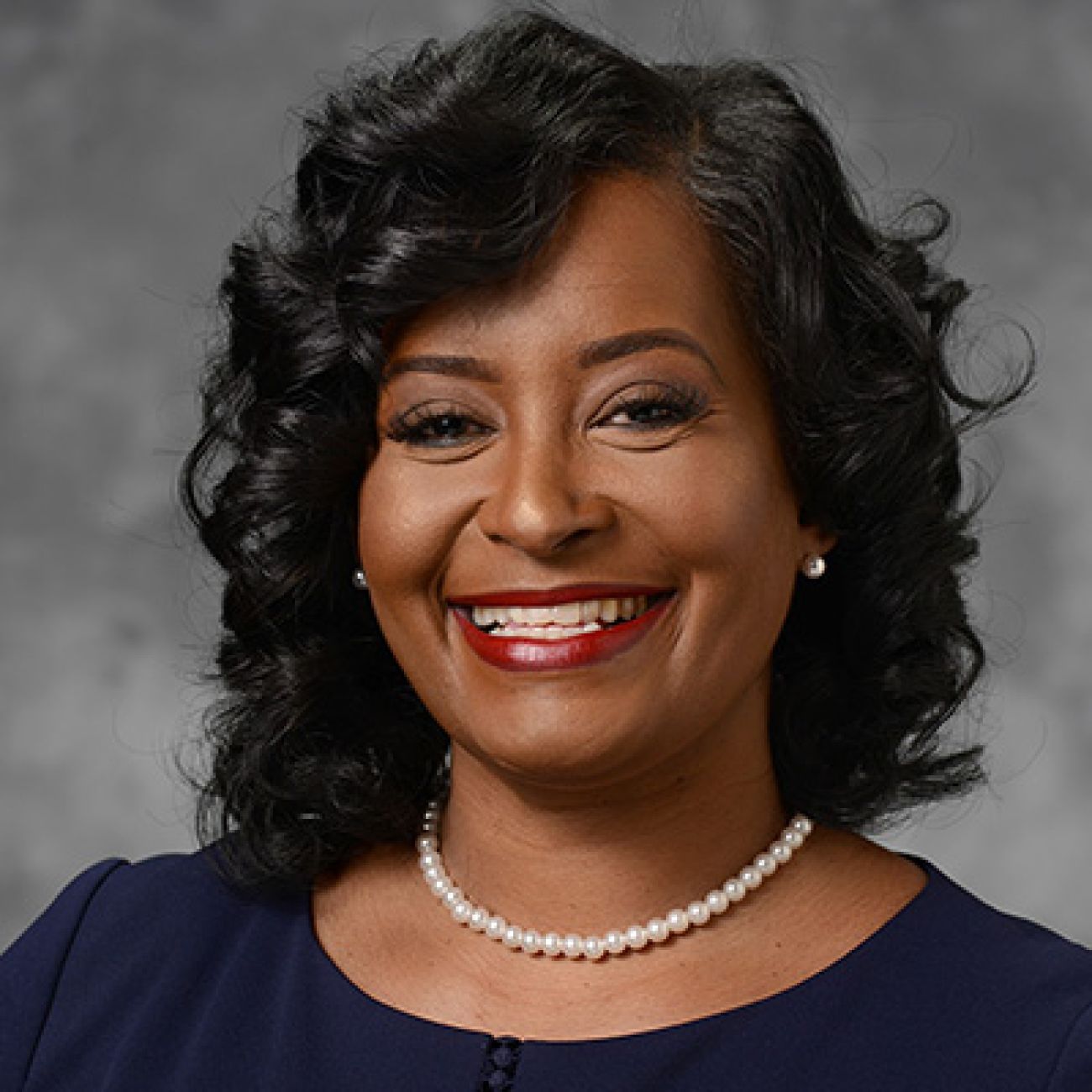
“Well, retirement isn't going to mean so much to someone 23, 24 (years old) and coming out of college,” she said. “They may not want so much investment in retirement, but more cash in their pocket so that they can pay back their student loans.”
Related:
- Michigan ambulance workers still in short supply despite state grants
- Bridge Lunch Break on Aug. 30 focuses on worker shortages in health care
- Help wanted: Report ranks Michigan health care jobs with the most need
- Michigan health centers need medical staff. How one program is helping
Health employers are cognizant that workers are more focused these days on work-life balance and self-care, Harrington-Davis and others said.
Schedules, for example, have to be flexible and employers willing to take what they can get.
The Washtenaw County health department needs seven full-time nurses; it currently has one and two part-timers.
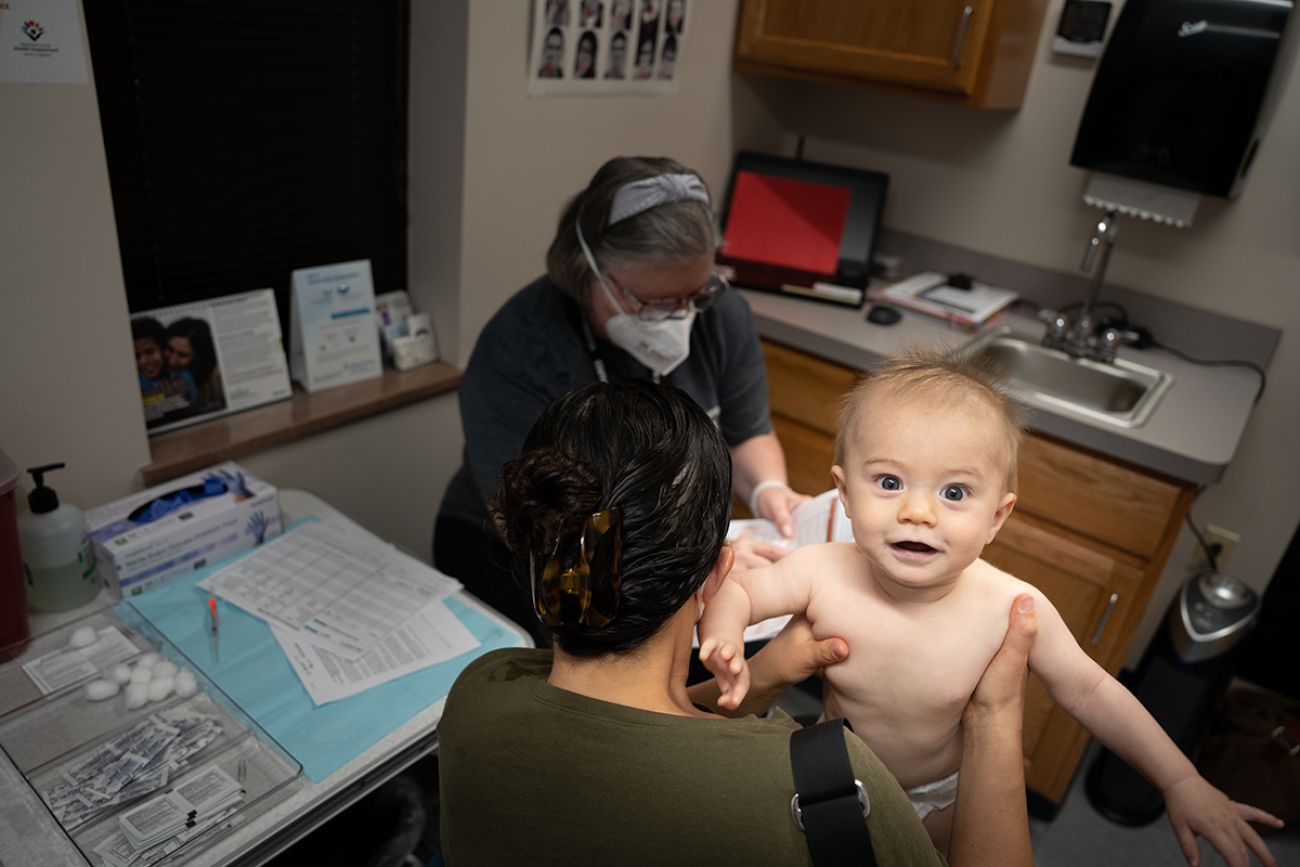
As large health care systems fight over the too-small pool of nurses, public health gets barely a nod, said Washtenaw nursing supervisor Chris Zilke. Average pay for a registered nurse in Michigan is about $77,000, according to the Okemos-based health care research nonprofit, the Michigan Health Council,which has been examining the state’s shortage in health care workers. Many hospitals offer signing bonuses, too
Few newly-minted nurses give a glance at public health, Zilke said.
“We did an interview the other day, and when we said ‘You are aware of the pay, that we start at $56,000 a year for a nurse?’ … There was almost like an audible gasp,” she said.
So Zilke — whose sparkly orange badge holder reads somewhat sarcastically “It’s fine. I’m fine. Everything’s fine.” — continues to rely on a handful of nurses lured out of retirement in 2021 during the height of the pandemic to give the first COVID vaccines.
To cover nursing shifts, more than two years later, Zilke cajoles those same retirees every three months to ‘re-up’ temporary contracts for another quarter. Stitching together hours from temporary nurses is a scheduling nightmare, but “it’s what we can do,” she said.
As Silke talks, 71-year-old nurse Christine Trevino pops her head into the office, and quips, “You know I’m too old for all of this, right?”
For its part, Memorial in Owosso needs another six radiology techs. Even with the help of an outside employment agency, the hospital has not been able to attract a single candidate, said Taylor of its talent management office.
In the next decade, the state will need nearly 4,000 more radiological technologists and technicians, according to the new report by the Michigan Health Council. Providers have posted more than 300 immediate openings for radiological techs every month this year, said Michelle Wein, the council’s research director.
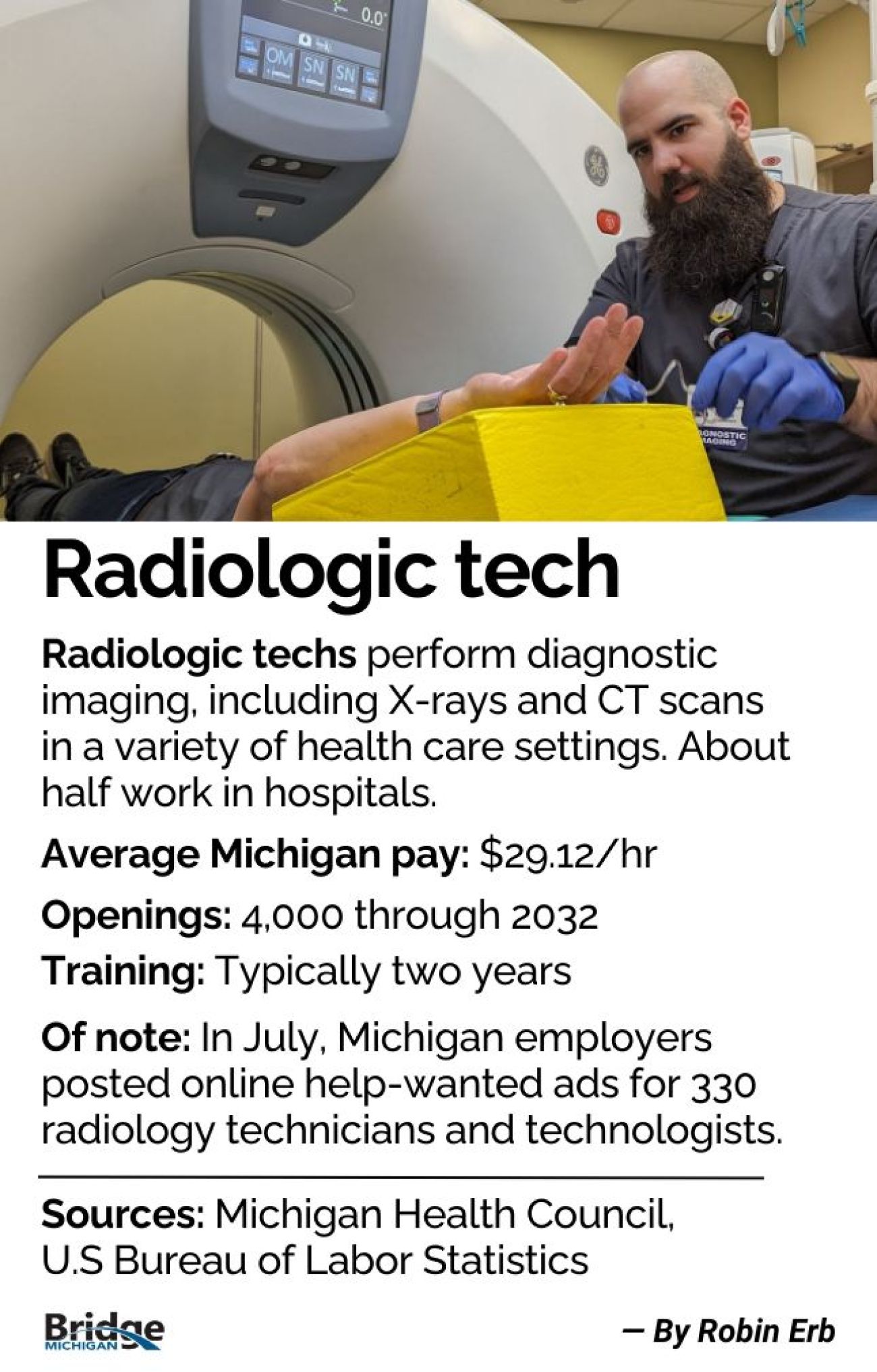
From child care to a pig roast.
There are dozens of other openings, too, at Memorial on the day Bridge visited, including 25 nurses and 35 patient care techs, the providers of round-the-clock care.
So Memorial is making an expensive investment in its workers: renovating a 20,000-square-foot building down the road as the Memorial Childcare Academy, which opened this week to the children of hospital employees as well as other families in the community.
Its smooth, yet-unmarred shelves are lined with blocks and bubblers and cars and dolls and art supplies.
The hospital obtained $150,000 in state funds for renovations, and its foundation and auxiliary organizations donated another $100,000 for playground equipment, according to the hospital.
Memorial’s dieticians will plan meals, oversee meal preparation, and the hospital’s nurses can tend boo-boos and visit the children on a regular basis, said the child care’s executive director, Adam Grass, as he strolls through a room full of yet-unused baby cribs.
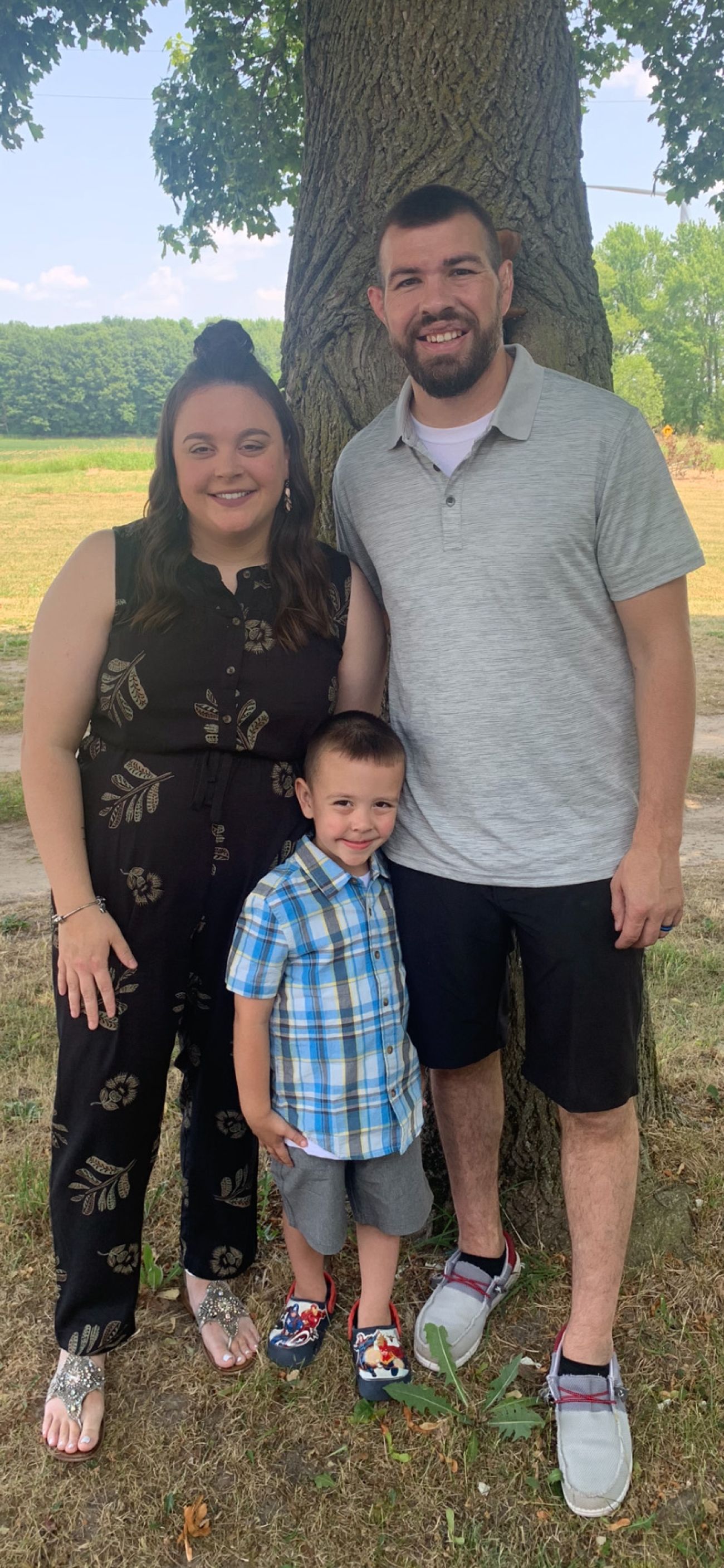
The hospital partnership creates an especially powerful recruitment and retention tool. Memorial staff will receive a $25 discount each week on child care costs for infants, for example. And it’s just a mile from the Memorial’s campus.
That’s a big win for Kolby Munro, a receptionist in the hospital’s neurology building, and her husband, Jordan, a neurodiagnostic technician.
The child care center and its hospital connections (their 4-year-old son, Maverick, is diabetic) offset the inconvenience of the hour-long commute to and from their job every day.
“If there’s ever an emergency, I can be there in five minutes,” she said.
Will it work?
Jarema of McLaren acknowledged there is no way to know which benefits will be most successful in retaining valued workers.
For now, the McLaren campaign in Petoskey has innervated hallways and workstations with talk of prizes and parties. The resulting sense of camaraderie might keep staff from wandering elsewhere, she said.
McLaren dishwasher Mike Brown isn’t so sure.
The 56 year-old was the winner of $1,000 in gift certifications from a landscaping service and a hardware store. And while he’s happy in his current job, he’s not so sure the campaign will make a difference for someone else.
“Raises,” he said, “are what will keep your good workers.”
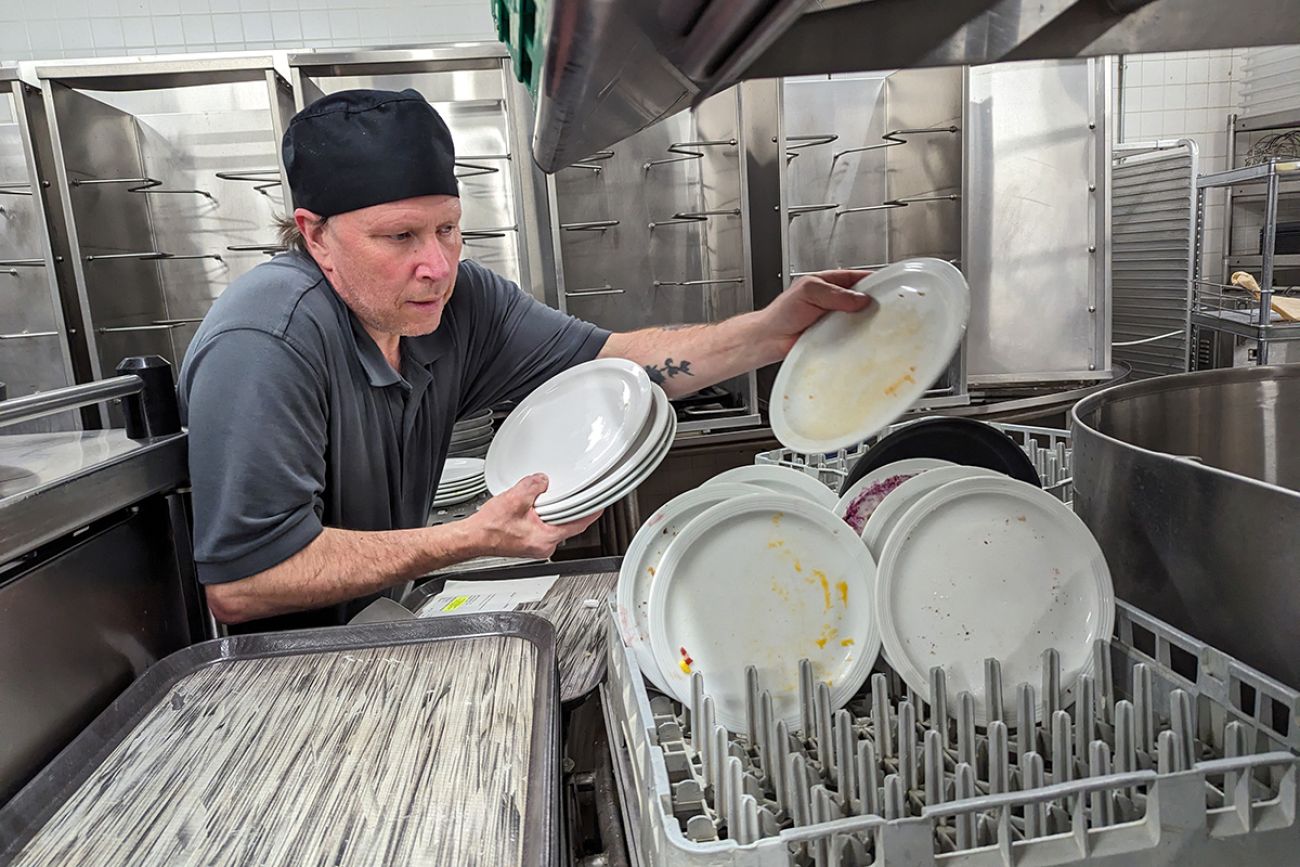
‘Meaningful work’
Ultimately, health officials say, recruitment efforts must also emphasize the purpose-driven role of health care.
“We have to do some branding around the importance of being in a hospital system and the value that you get from it personally,” said Corewell’s Harrington-Davis. It’s “about really connecting (the job) to a person's ‘why.’”
Health care is hard work emotionally and physically, particularly for workers who routinely perform their jobs in an atmosphere of violence and grief, said Hilary Pamperin, director of Memorial’s inpatient care in Owosso who is also a nurse.
“We need to shift the conversation to nursing as a career that fills your cup,” Pamperin said. “Maybe that’s the millennial in me, but that’s what we’re all looking for, right? Meaningful work — that’s healthcare.”
In Petoskey, Kilpatrick said she often thinks about that purpose, especially since — some months back — she was startled to see her father’s name on a door stopper she was using to hold a door open while she was cleaning a room.
It was his handwriting, scrawled in a permanent marker from a time when he worked in those same rooms before his death.
And she thinks, too, of her supervisor who worked alongside her earlier this week. “It means something, you know, when you’re part of saving lives.”
Is the Michigan worker shortage impacting you and your family? Let us know how and we may talk to you for a future report. rfrench@bridgemi.com
See what new members are saying about why they donated to Bridge Michigan:
- “In order for this information to be accurate and unbiased it must be underwritten by its readers, not by special interests.” - Larry S.
- “Not many other media sources report on the topics Bridge does.” - Susan B.
- “Your journalism is outstanding and rare these days.” - Mark S.
If you want to ensure the future of nonpartisan, nonprofit Michigan journalism, please become a member today. You, too, will be asked why you donated and maybe we'll feature your quote next time!


